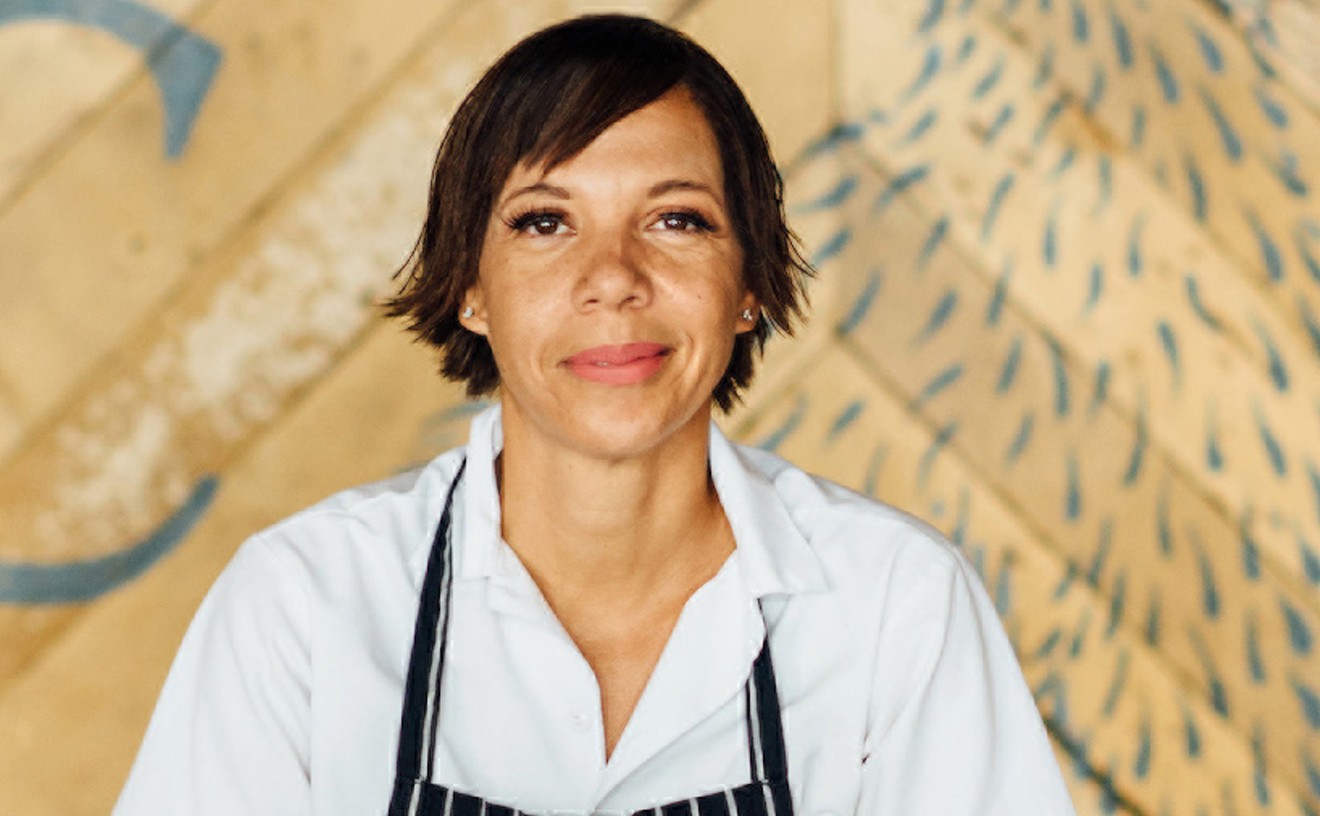For instance Caviarteria offers Icelandic gravlax. Bambú serves Kobe beef (from Japan). Tantra flies in Cypress Grove Bermuda Triangle goat cheese from California and dried mango from Thailand. Even Norman's gets its mushrooms from the Pacific Northwest. In a way I think this backlash was to be expected. Economically speaking no trend can go unchecked; every rise has its corresponding fall. Gastronomically speaking, how long are we, the diners, expected to pay top dollar for Homestead tomatoes and Everglades frogs' legs when we could be feasting on Guatemalan prawns and Quisqueyan bananas (from Mexico) for the same price?
The dining public has grown bored with being loyal to South Florida stuff, observes Willis Loughhead, executive chef at Tantra. Now, he says, there's "more of a market for luxury. More people are traveling; food is becoming more fashionable." Plus, he adds, "There's been a shift in the hot, trendy crowd. They seem to be experimenting more with food and less with drugs. Just five years ago, it was cocaine and vodka for the models. Now they're actually eating, sharing, trying."
Sparking jaded appetites is one reason Loughhead looks for unusual specialty items that come from outside our immediate realm. His other major reason? "It's fun," he admits. "I get to try out new ingredients, figure out how to make dishes work."
In other cases a menu of strict international luxury products only makes sense. Caviarteria, for example, is the restaurant outgrowth of the specialty-foods retailer by the same name. The menu, made up of dishes such as a Thai lump-crabmeat platter, Scottish smoked salmon and three-caviar layer cake, and Périgord foie gras platter, is a natural, given that the company has been importing these products for two generations now. For them to suddenly start serving Loxahatchee goat cheese would be ludicrous.
Same with Bambú. Though executive chef Rob Boone trained under Norman Van Aken, an outspoken proponent of supporting our back-yard growers and fishers, Boone's exotic pan-Asian menu justifies its use of items like Kobe beef and honshimeji mushrooms. In other words they fit the bill. Somehow Angus beef just wouldn't have the same ring.
But, says Van Aken, the "lack of balance is a little odd. It's right to support the local people. I can't understand menus that use halibut and skate wing when they can just as easily use snapper and pompano." He does admit to FedEx-ing fresh oysters from Northern climes when he needs them. It's a matter of being true to the dish first, the region second.
This philosophy also is shared by Mark Militello of Mark's South Beach, who is known for his high standards. He won't use a product just because it's local. He'll rocket goat cheese from the Moon if he thinks the best kind is made there.
The way around that, of course, is to design menus to correspond with our growing seasons, which Van Aken does on a regular basis. That way his need for an exotic ingredient is limited, and his demand for local ones is enormous. And most of the chefs who are trying out these hot international ingredients are not forsaking neighborhood markets completely. Militello has always presented an array of South Florida products on his menus along with the more unusual ones. Loughhead does use the vaunted Homestead tomato in a dish he pairs with California goat cheese. Boone flavors a yakitori dish with "local bonito." So there is some balance, after all.
In everything but the price tag, as it turns out. Susan Garrett of Culinaire Specialty Foods, which sells many of these luxury products to our area chefs, notes that no matter how many restaurants are asking for them, the costs of these products will remain high. That fee obviously translates to the diner. "They're exclusive," she says, describing the items her company carries. Part of the reason is because many of these cheeses, fruits, and vegetables can't be stocked. They have to be brought in on a specific-needs basis. If she has her way, however, they'd at least be more commonplace. Garrett has instituted programs with various dairy farms in Europe to bring artisan cheeses directly to Florida. By taking specialty orders from the restaurants once per month, she can skip many of the intermediate steps in retail and supply a fresher product.
Garrett agrees this trend towards anywhere-but-here luxury items still is in its toddler years. Products will get more outlandish (currently she's hawking fig balsamic vinegar and white-truffle honey from a line in San Francisco), and chefs will become more inventive because of them. And she'll be doing her part to turn them on to even more bizarre concoctions as they develop. In turn, she says, the public, having seen them on menus, will begin to search for them in markets for home use. That's when we'll know for sure the trend has taken root.
I could go the cautious route and offer a reminder that this ever-increasing need for exotica is how the Victorians came to be eating hummingbird tongues in aspic and other assorted delicacies. But I'd rather be optimistic, give up the garden, fold up the fishing poles, and go with the fact that it no longer takes a village to feed us. It takes the whole world.










